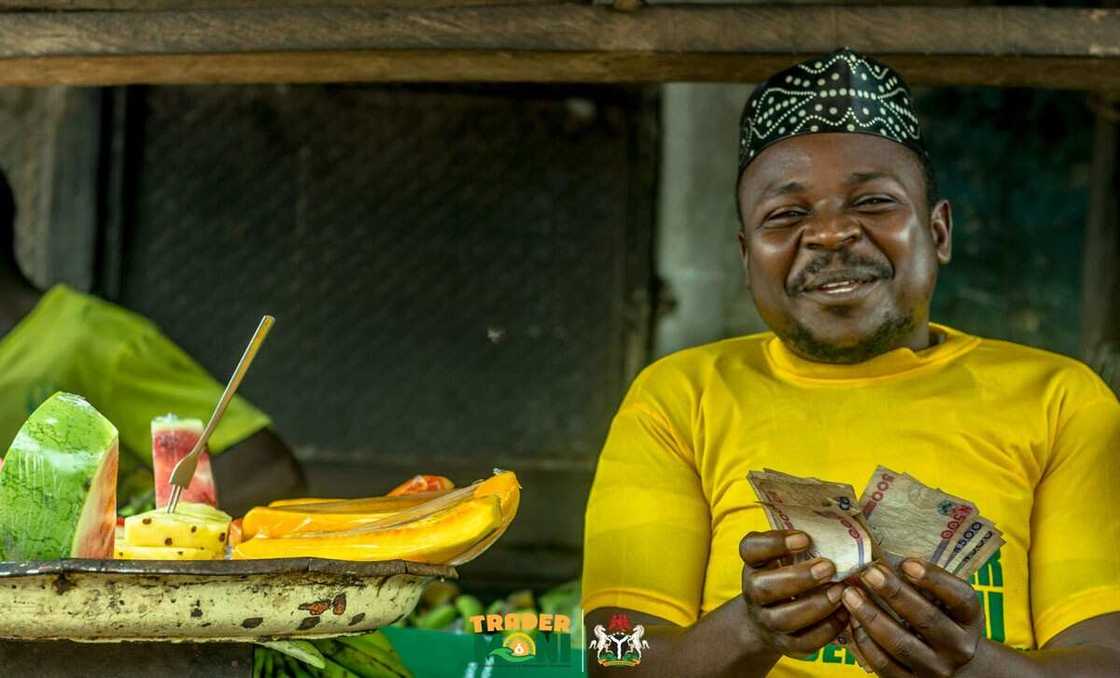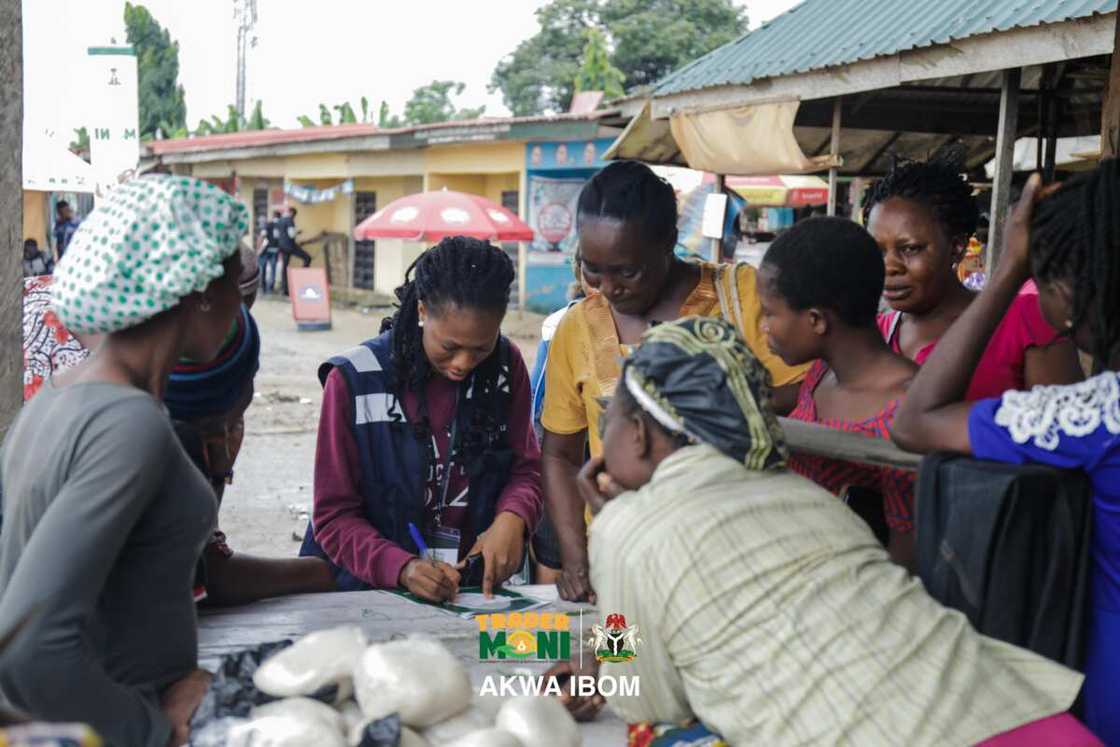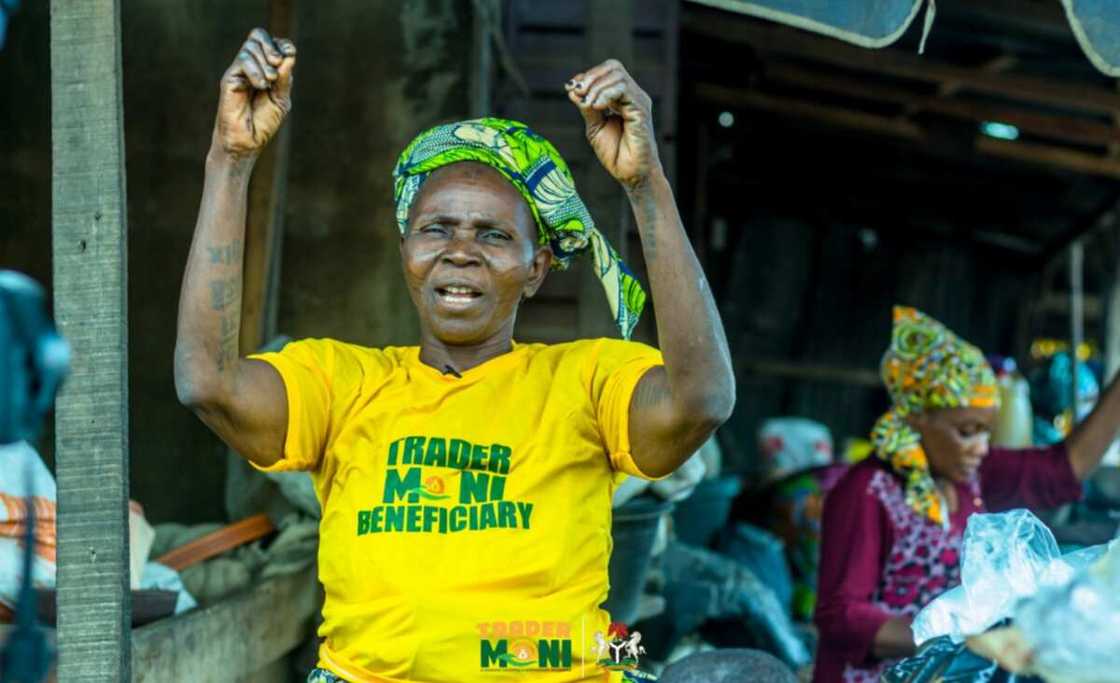The truth you should know about Tradermoni - Uzoma Nwagba
The TraderMoni scheme of the Federal Government has generated a significant amount of buzz and national conversation from those who laud its impact, and those who view it as politically motivated. TraderMoni is one of 3 micro-credit products of the Government Enterprise and Empowerment Programme (GEEP).

Source: UGC
In an interview with BusinessDay, a man behind the wheels, and Chief Operating Officer of GEEP, Uzoma Nwagba explained how GEEP was a direct response to the challenge of access to funds for micro-enterprises and financial inclusion.
This article captures some salient points from the interview.
What is the GEEP initiative really about?
GEEP is a microcredit programme that provides much-needed capital to traders, artisans, farmers, petty traders. It is one of the social intervention programmes of the Federal Government and comprises three products: MarketMoni, FarmerMoni, and TraderMoni. GEEP was initiated in 2016 by the Federal Government; with an understanding that there are over 30 million Nigerians at the base of the pyramid in active commercial activity but never have an opportunity to access credit. In 2017, only 0.04% of bank loans went to this micro-segment.
These beneficiaries are hardworking Nigerians and specifically, they are not “interesting” to the traditional lenders: they have little to no financial track record, they have no collateral, some barely have formal identities. However, they are actively trading and in dire need of capital. They are sellers of the food stuff you cook, the beverages you drink, the airtime you use, and kiosk items you buy. And there are tens of millions of them, across the 36 states and the FCT. GEEP is an opportunity to properly identify and capture these Nigerians, provide them with capital, and in the process onboard them into the formal financial system of bank accounts and mobile wallets – in a way that they can be sustainable recipients of credit.
It is important to note that these loans go from N10,000 to N300,000. You start at N10,000 if you are a petty trader – and you quickly graduate to N300,000 by simply repaying your loans.
Besides the fact that this population not only needs small amount for a start, they also do not have the traditional bells and whistles – BVNs, KYCs, bank accounts, collaterals – which are the requirements of traditional lending. So a product specifically had to be made for them, driven by agents on the field, equipped with tablet computers, and disbursed through mobile wallets which only require the trader to have a mobile phone. This can be truly transformative to this sector, and to the lending ecosystem. In the past 2 years, a total of 1.5 million loans across the three programs have been disbursed, 1.2 million of which are TraderMoni beneficiaries. The loans are driven strictly by the scale of demand.

Source: UGC
Is Tradermoni a vote-buying scheme of the Federal Government?
The first GEEP program started in 2016, so this is the third year of operation. The first loan registration was in May 2016. Since then, the GEEP program has been running nonstop across the country. It is the direct field learnings while implementing MarketMoni that led to the introduction of the TraderMoni which started as a mobile-based loan product and kicked off in September 2017. The point is that GEEP program did not start in election season. Very far from it.
As at November 2017, even before the country cared who was running for office or not, the Bank of Industry had disbursed over 300,000 loans. Moreover, for those who still push the vote-buying narrative, it is important to always ask: is GEEP (either MarketMoni, FarmerMoni, or TraderMoni) a wrong programme? In other words, is it impacting millions of Nigerians or not? If it is, then why would there be a wrong time to do the right thing? If a pepper seller sees credit she needs, shouldn’t she access it while it is available? Think about this even more deeply, the vote-buying narrative could even be another patronizing expression of our middle-class privilege and we must always check this.
As a middle-class entrepreneur, or business mogul, you can walk into BOI today to borrow funds to grow your business. You walk out with your dignity intact, and possibly with a loan. Sometimes these loans run into tens of millions of Naira, and billions of Naira. Yet, nobody accuses you of being vote-bought, even when you are borrowing the money of a government institution or project. On what basis therefore do we assume that those at the bottom of the pyramid are also not intelligent economic actors who can make rational decisions to better their lives? These are human beings with goals, aspirations, and dignity like you.
They are not genetically predisposed to bad decisions, or so vulnerable that they would just be bought. Nothing could be further from the truth. If they have a better life, our job is done.
As a matter of fact, it is noteworthy that some of the states with the largest beneficiaries are not even states that politically align with the party in power. As long as you are a Nigerian petty trader, you are eligible!

Source: UGC
So the big question is: Are people getting impacted by the programme or not?
The answer is yes.
It is impressive to see the results so far. Over half of these 1.5 million beneficiaries are first-time operators of bank accounts or mobile wallets. Seeing them use these tools even after receiving their loans is a testament to the power of financial inclusion for our economy. The Bank of Industry is committed to targeting everybody who is not financially included. It is going to be a long journey to bring the over 30 million Nigerians and micro-enterprises that are financially excluded or under-included, but the steps are being taken and Tradermoni is playing a central role.
So much more was said, follow link to read the full interview.
[Sponsored]
Source: Legit.ng


